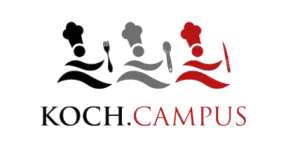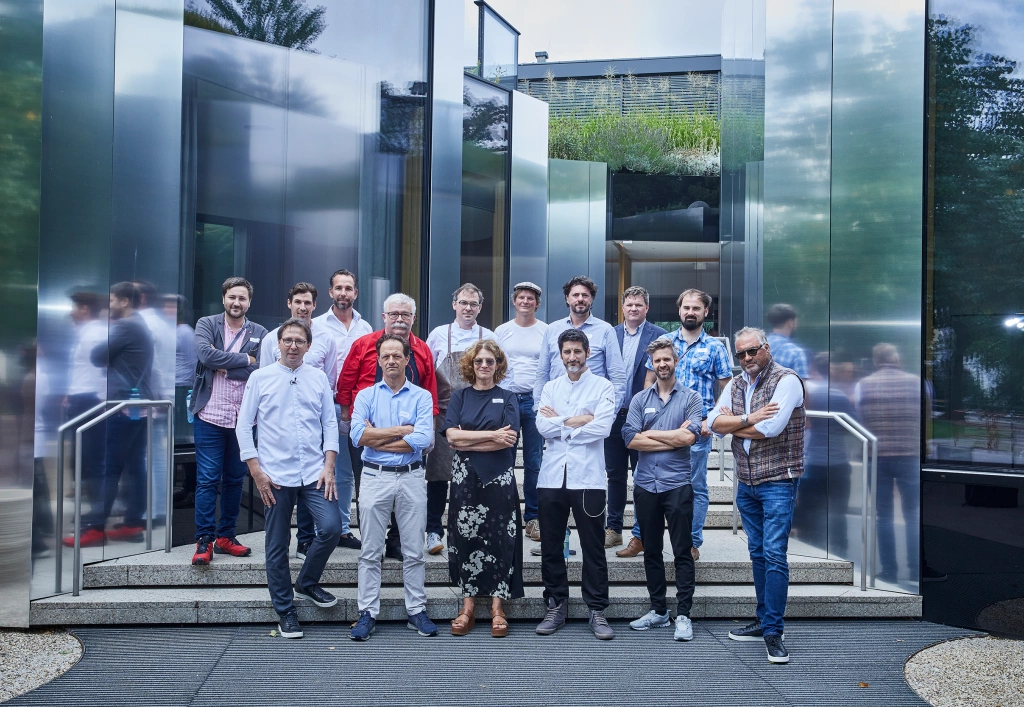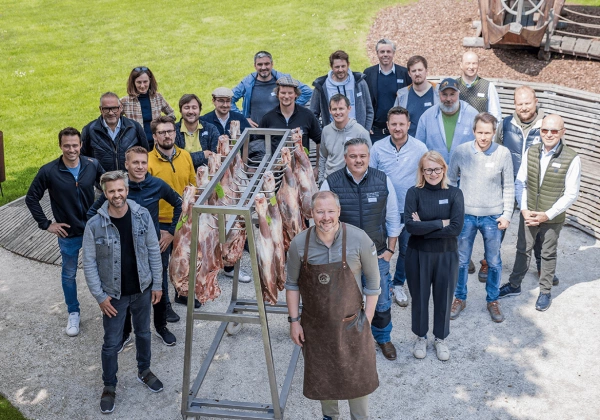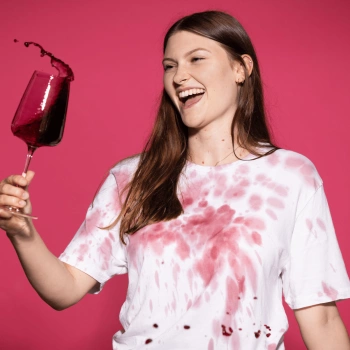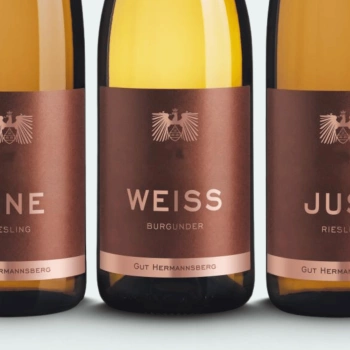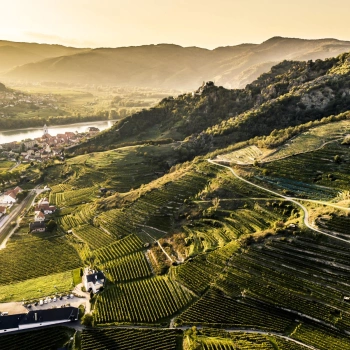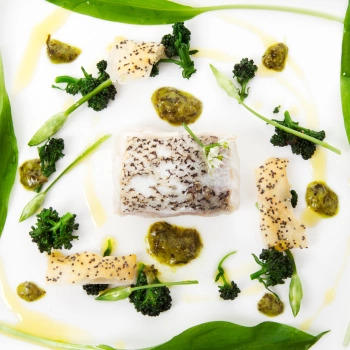Inner values
A sustainable and respectful handling of animals is a particularly important point for Executive Chef Heinz Reitbauer. No wonder then that the “Trip Inward” event at his award-winning Vienna restaurant focused exclusively on offal. Austrian cuisine, especially in Vienna, once held offal in exceptionally high regard. Dishes like the “Wiener Innereienhimmel,” “Glacierte Leber,” “Beuscherl” and “Hirnpofesen” enjoy a long local tradition. By the 1970s, however, offal cuisine had lost its popular shine. Yet the intervening years have revealed that offal is in fact rich in components such as vitamins (vitamin A, B and C) and minerals (zinc, iron and folic acid).
At the Koch.Campus workshop, Heinz Reitbauer explained the various properties of brain, stomach, heart, kidneys, spleen, lungs, etc. and how quality foodstuffs can be identified. A calf’s lung was even inflated using a compressor to demonstrate in very real and precise terms how the quality of the lung extends down to the smallest lung nodule.
Heinz Reitbauer emphasizes at every opportunity that the health and well-being of the animal is essential for high-quality offal delicacies. “More than any other part of the animal, proper husbandry, quality feed and healthy growth are immediately visible — and tasteable — in the offal!” The lecture then shifted to practical mode, as the entire restaurant became a true offal lab. The Steirereck team ran five cooking stations together with offal experts Max Stiegl (Gut Purbach) and Master Butcher Franz Dormayer. Each held offal dishes for tasting by the assembled audience of experts. This included ceviche from horse heart, ragout from fish heart, bratwurst from lungs, rooster testicles, greaves from lung and backerbsen from spleen. Another stand presented raw offal for assessment and comparison, with butcher Christoph Zotter (Fleischerei Zotter) providing insightful analysis of the differences between offal drawn from industrially farmed animals and offal from animals that enjoyed humane husbandry. Executive Chef Paul Ivic (Restaurant Tian) prepared a range of vegetable dishes to offer a vegetarian counterpoint.
